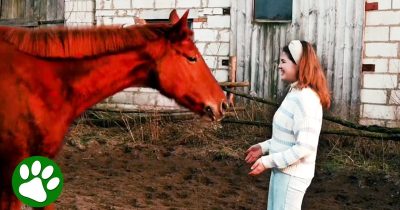
If you have pets around the house, it’s important to create a safe environment for them, and keep them away from things that can cause them harm.
Some no-nos are common knowledge, like how dogs can’t eat chocolate. But as new items are added to the household all the time, it’s important to keep up to date on which ones are hazardous.

Now, one woman is warning her fellow dog moms that a trendy home product could be poisonous to dogs.
Marianne Whyte, from New Zealand, came home late one night in November and found her dog acting strangely.
“My dog didn’t recognize me,” she wrote. She realized that she had been running her new diffuser—an aromatherapy device that vaporizes essential oils—and turned it off. The dog felt better by the next day.
But then, another incident occurred: “Today at work, my dog sitter said that he wouldn’t come out from under the bed,” Marianne wrote. “It was very odd as he is a happy dog.”
“I came from work early and again, he was very confused about who I was.”
She took her dog to the emergency vet, and discovered that it was the essential oils used in the diffuser that were poisoning her dog.
“It turns out that the tea tree oil I was using in the diffuser is toxic for dogs,” she wrote. In fact, the vets told her they had seen cases like this before, due to the rise in popularity of essential oils.

She wrote that her dog’s liver was found to be okay but he needed fluids under the skin to get the toxins out.
But after that close call, Marianne decided to send out a warning so no dog ends up accidentally poisoned like this again.
“Please make sure that the essential oils you are burning are not toxic for your pets,” she wrote. Her post has made an impact: it has now been shared over 126,000 times on Facebook.
She even included a comprehensive list of oils that are known to be harmful to dogs:
Anise (Pimpinella anisum)
Marianne Whyte
Birch (Betula)
Bitter Almond (Prunus dulcis)
Boldo (Peumus boldus)
Calamus (Acorus calamus)
Camphor (Cinnamomum camphora)
Cassia (Cassia fistula)
Chenopodium (Chenopodium album)
Cloves (Syzygium aromaticum)
Garlic (Allium sativum)
Goosefoot (Chenopodium murale)
Horseradish (Armoracia rusticana)
Hyssop (Hyssopus sp. with the exception of Decumbens)
Juniper (Juniperus sp. with the exception of Juniper Berry)
Mugwort (Artemisia vulgaris)
Mustard (Brassica juncea)
Oregano (Origanum vulgare)
Pennyroyal (Mentha pulegium)
Red or White Thyme
Rue (Ruta graveolens)
Santolina (Santolina chamaecyparissus)
Sassafras (Sassafras albidum)
Savory (Satureja)
Tansy (Tanacetum vulgare)
Tea Tree Oil (Melaleuca alternifolia)
Terebinth (Pistacia palaestina)
Thuja (Thuja occidentalis)
Wintergreen (Gaultheria procumbens)
Wormwood (Artemisia absinthium)
Yarrow (Achillea millefolium)
Glad this dog is okay! Thank you to this woman for shedding light on this important issue.
Do you know a pet owner who uses essential oils? Share this warning!






